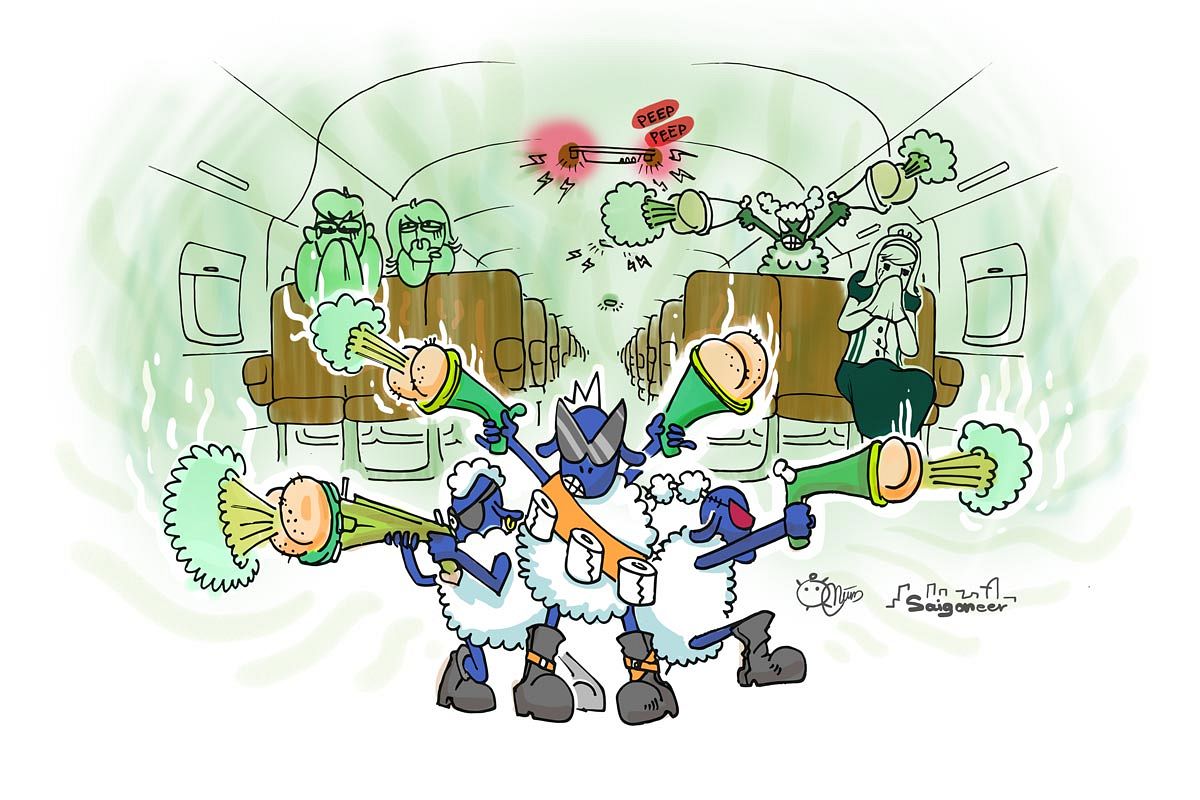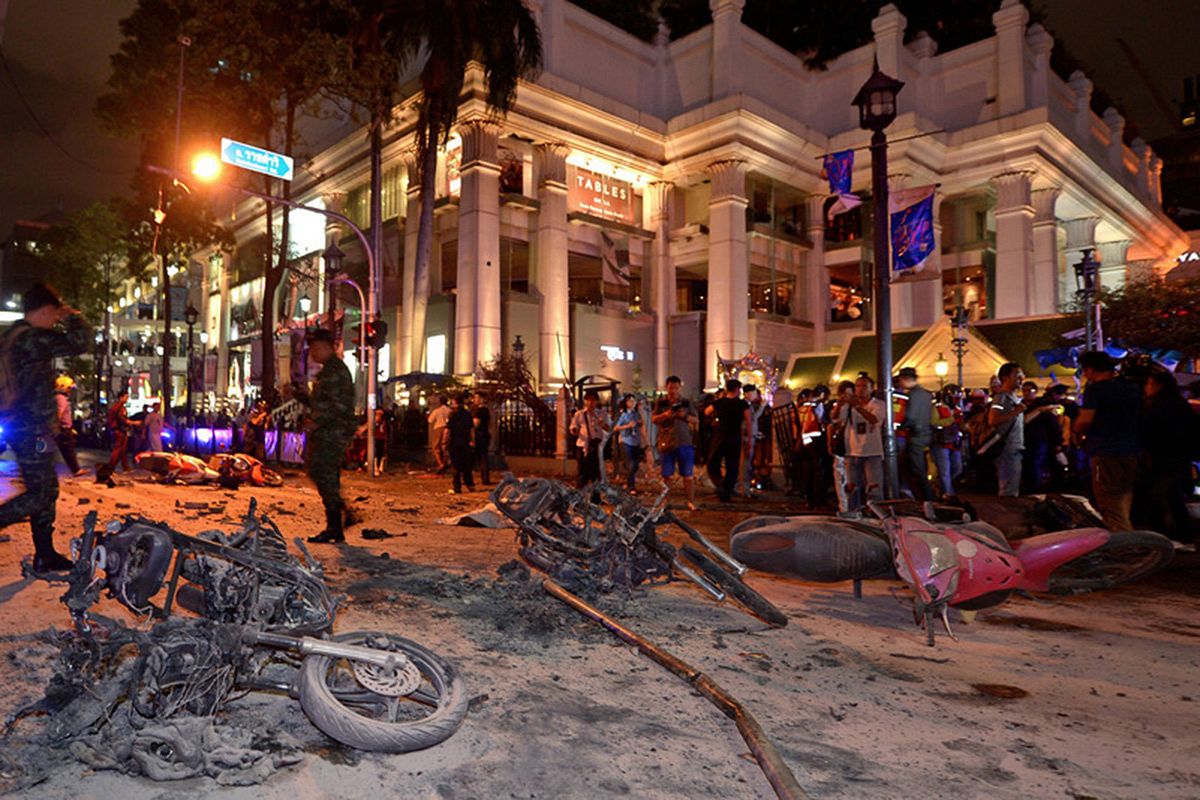If you were in Singapore last week, you might have noticed an unusual haze hanging over the city. Normally Southeast Asia's bastion of environmental cleanliness, the Lion City closed schools and shuttered businesses as its air quality deteriorated to a dangerous level.
Related Articles:
- Phu Quoc Authorities Want To Wipe Out Forests, Farmland For Development
- 22 Photos That Reveal How Bad Pollution Has Become In China
- [Video] Vietnam’s 300-Year-Old Food Forest
The reason for the smog was, and is, something of a touchy subject: thousands of kilometers away, across the Singapore Strait, Indonesian forest fires are burning so intensely that the country's neighbors – mainly Singapore and Malaysia – are blanketed in a toxic haze.
The scary part is that Singapore's unhealthy air is merely a small but horrifying glimpse of what is happening in Indonesia, where forests are being set ablaze at an alarming rate. And it's all for the sake of palm oil, a substance found in everything from peanut butter to soap to certain cosmetics, according to VICE.
As one of the world's top palm oil producers, Indonesia has thrown itself headfirst into the US$44 billion industry, clearing scores of land to make way for palm oil plantations. A recent study in the scientific journal Nature Climate Change found that Indonesia's deforestation happens at nearly twice the rate of the Amazon, with the island nation losing 840,000 hectares of rainforest in 2012 alone.
While the destruction of valuable natural resources is already bad news, the problem goes beyond simply robbing Indonesia of its forests. Because the country is covered largely in carbon-rich peat, its slash-and-burn deforestation is responsible for up to 20% of global warming. Indonesia is the third worst greenhouse gas emitter on the planet behind the United States and China.
Of course, it's not just the trees that are suffering. In addition to endangering several dozen animals, Indonesia's deforestation means that the people living among these long-smoldering fires are subject to horrendous conditions. In Kalimantan, where visibility was less than 50 meters last Saturday, reports CBC, military personnel took to distributing face masks to locals and firefighting teams were dispatched around the clock in an attempt to stop the fires.
According to The Atlantic's City Lab, safe air ranks around 300 on the Pollution Standards Index (PSI). In Singapore, where urbanites did not appreciate the thick haze coming from Indonesia, the PSI index climbed to 341. But for the 220,000-odd residents of Indonesia's Palangkaraya town? You couldn't see your hand in front of your face: their PSI came in just shy of 2,000.
Why, then, is slash-and-burn deforestation legal in Indonesia? As you might have guessed, it's not. In 2011, VICE reports, the Indonesian government placed a moratorium on forest-clearing in an effort to quell the destruction of its natural resources. However a loophole in the law permitted existing projects to wrap up within a limited time frame, sending several large palm oil corporations on a forest-burning spree.
Couple this with a bit of corruption and the problem persists. Hoping to solve their own haze issue, Singapore has even offered to help Indonesia stop its forest fires, provided the Indonesian government names the tree-killing culprits, but authorities remain mute. In the Nature Climate Change study mentioned above, researchers also found that the government had conveniently underestimated Indonesia's deforestation by as much as half.
Beyond permitting the slash-and-burn practices of large companies, illegal land seizures have also robbed many Indonesian subsistence farmers of their livelihood, forcing them into work for less-than-honest employers. Those who refuse to participate sometimes even face the wrath of hired mercenaries.
“Subsistence forest dwellers are turned into wage slaves,” Jeff Conant, director of the Friends of the Earth’s international forests program, tells VICE. “Rather than subsisting off the land, they work for very minimal wages.”
“Governments say it’s the way to lift people out of poverty,” he continues. “But that sets up this false dichotomy between environmental protection and economic growth, when in fact the economic growth benefits only the corporations.”
Between corruption and lax law enforcement, most of the guilty parties continue to walk free, setting Indonesia's forests ablaze as they please.
This is by no means a problem that will disappear overnight, but the first step toward tackling the issue is knowledge. Thanks to a real-time map produced by Global Forest Watch, anyone with an internet connection can now access data about forest fires around the world, including Indonesia. While this is vital data in the fight against the country's deforestation, zoom in on Indonesia and the visual evidence is tragic: between the land that's currently ablaze, the areas ceded to palm oil plantations and the hotspots where logging has robbed the country of its natural resources, Indonesia's green is fast disappearing.














